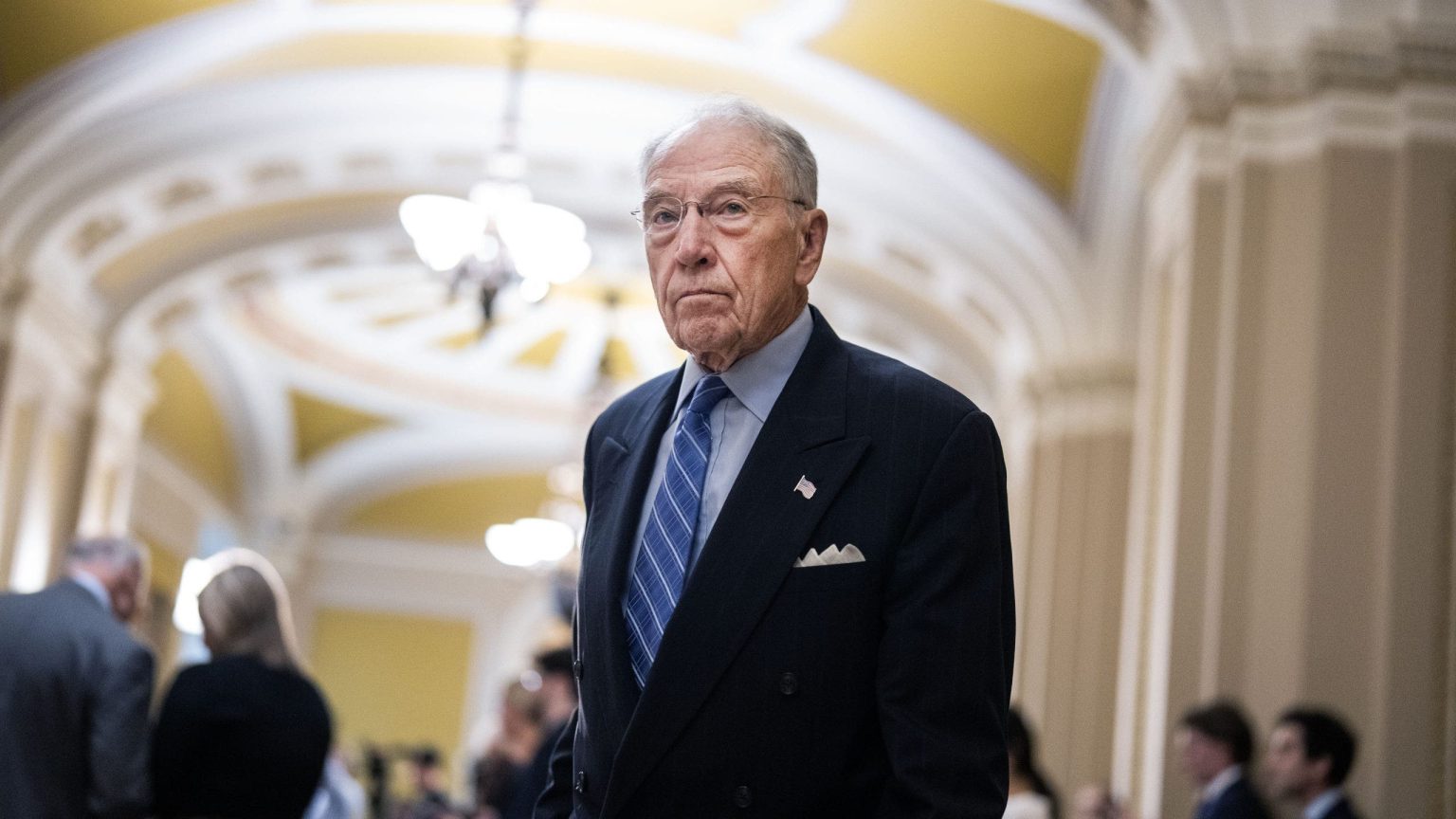Senator Grassley Expresses No Confidence in FBI Director Wray
Senator Chuck Grassley (R-IA) has publicly declared his lack of confidence in FBI Director Christopher Wray, urging both Wray and Deputy Director Paul Abbate to resign. Grassley’s strongly worded letter criticizes Wray’s leadership, citing a lack of transparency and accusing the FBI of obstructing congressional oversight. He emphasizes his commitment to government transparency and his history of holding officials accountable. Grassley’s letter comes as President-elect Trump has announced his intention to nominate a new FBI director, a choice that will be subject to Senate confirmation. The Senator’s public rebuke signals potential challenges for Wray’s confirmation if he were to be renominated, and highlights growing tensions between the FBI and some Republican lawmakers.
Biden’s Regulatory Expansion and Political Landscape
President Biden has surpassed former President Obama in the volume of regulations published in the Federal Register, drawing criticism from some for an expansive approach to governance. This regulatory surge comes amidst intraparty debate regarding Biden’s approach to the final days of his term. Simultaneously, progressive Democrats have expressed frustration over what they perceive as ceding the spotlight to former President Trump, while the White House defends its actions. The administration has also announced a new counter-drone strategy in response to increasing unmanned attacks on US interests. Furthermore, Biden updated the nation on the fall of the Syrian Assad regime, highlighting it as a historic opportunity.
Trump’s Post-Presidency Influence and Legal Battles
Former President Trump’s influence continues to be felt within the Republican party and the broader political landscape. Pro-life groups have expressed concern over his stance on abortion pills. Elon Musk joined House Republicans in a pressure campaign related to a social media bill. Former Representative Liz Cheney responded to Trump’s suggestion of jail time for members of the January 6th committee, characterizing it as an "assault on the rule of law." Meanwhile, hundreds of veterans expressed their support for Tulsi Gabbard for Director of National Intelligence. Senator John Cornyn signaled his inclination to support Trump’s potential FBI pick, Kash Patel. A contentious debate unfolded over a defense bill provision banning funds for transgender medical care for minors. Finally, Elon Musk echoed Ron Paul’s call to eliminate foreign aid.
Shifting Political Alliances and 2024 Speculation
Lara Trump’s resignation as RNC co-chair has fueled speculation about a potential Senate run in Florida. This development coincides with newly elected Democratic senators filling vacancies in California and New Jersey weeks ahead of schedule. Public discourse continues to reflect varied reactions to political figures and events, with some expressing anticipation for Trump’s return to prominence, while others grapple with concerns about security following the murder of a UnitedHealthcare CEO. Trump’s previous tariff threats are being re-evaluated as potential tools for advancing US interests. The ongoing saga of Hunter Biden continues to draw attention. Trump has also released new fragrances, framing them as symbols of his political success.
International Developments and Domestic Challenges
The fall of the Syrian Assad regime and the role of Abu Mohammed al-Golani, a prominent terror leader, have become focal points of international attention. Domestically, Trump attributed his past election win to specific factors while blue state attorneys general strategize on how to resist potential Trump-era deportation policies if he were to be re-elected. A report offers strategies to combat the criminal activities of the Tren de Aragua gang in US cities. These events underscore the complex interplay of international and domestic challenges facing the United States.
Looking Ahead: Political Landscape and Emerging Trends
The political scene remains dynamic, with shifting alliances, ongoing policy debates, and emerging challenges. The Biden administration navigates internal pressures while addressing international developments and domestic concerns. Trump’s continued influence on the Republican party shapes the political discourse. As the 2024 election cycle approaches, speculation about potential candidates and key issues intensifies. The intersection of domestic and international events, along with evolving public sentiment, will continue to define the political landscape in the coming months and years.

